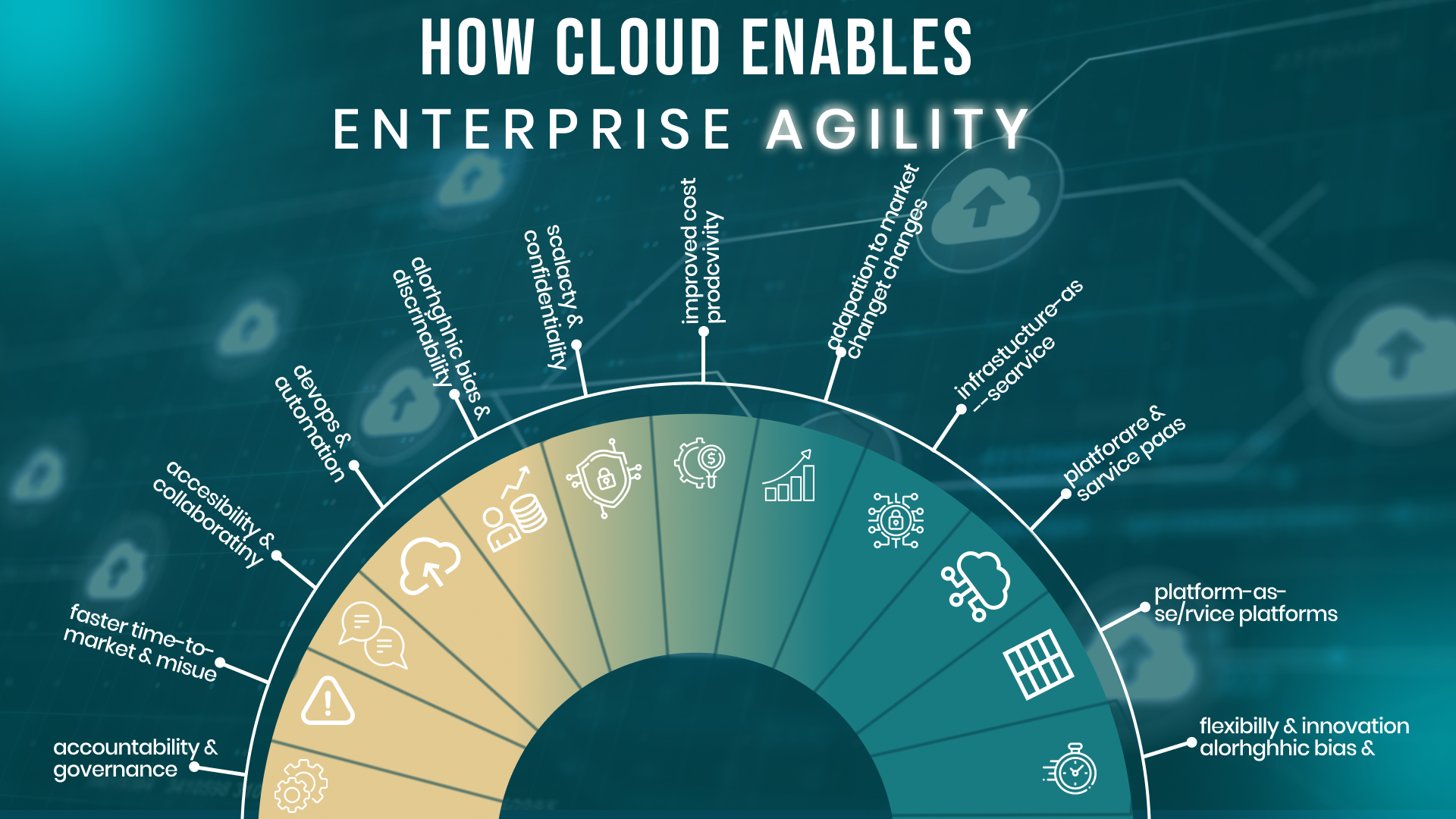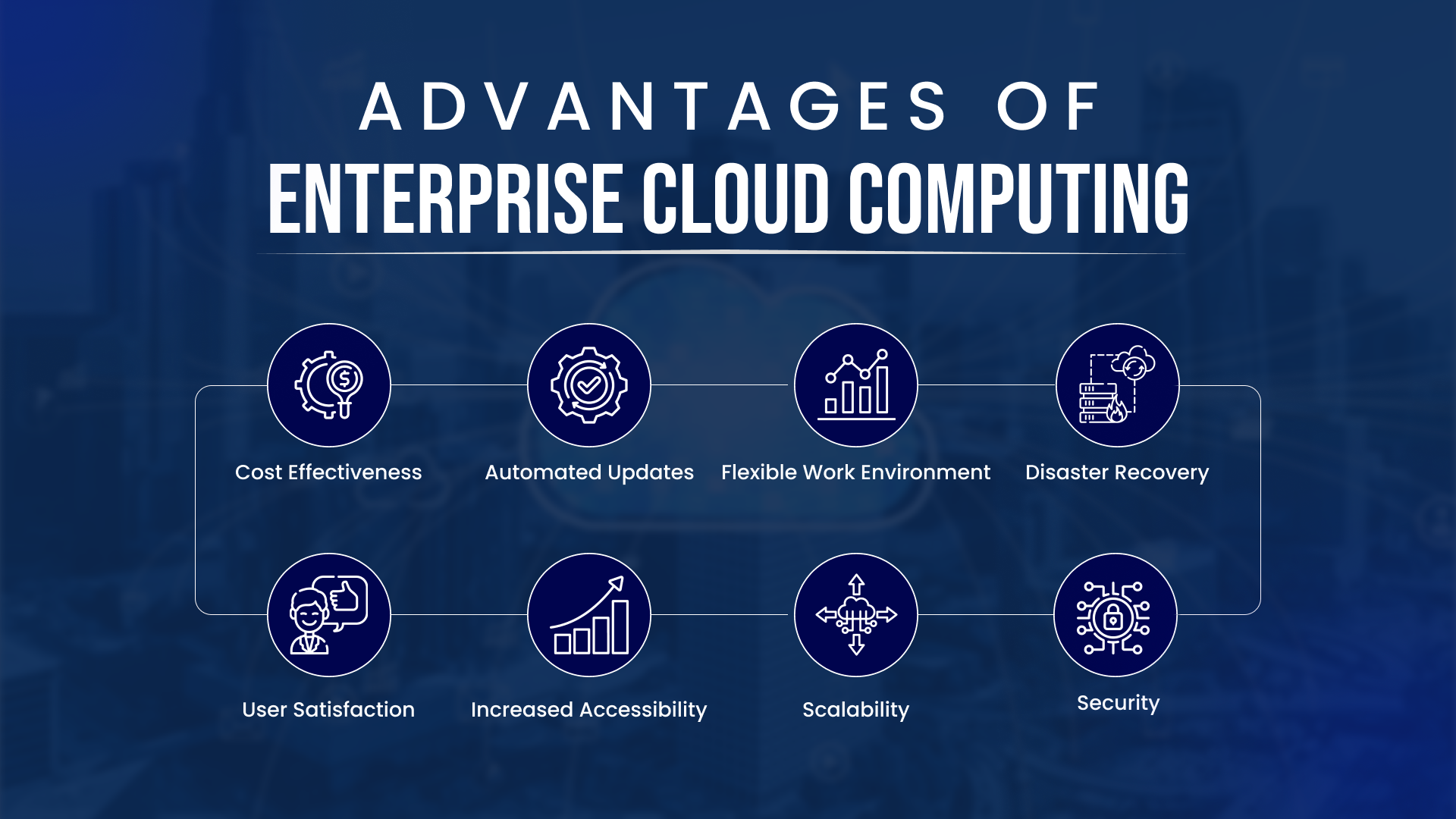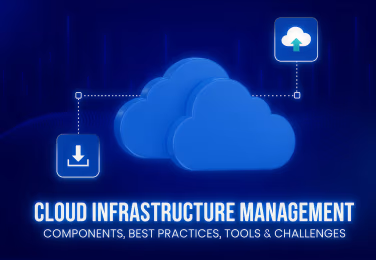

- By Admin
- 11 November, 2025
- 6 min Read
The Role of Cloud Services in Building Secure, Scalable Enterprise Platforms
Enterprises today face growing pressure to manage data securely and operate efficiently while adapting to rapid changes in technology and market demands. Traditional IT systems can no longer support these needs because they are expensive, inflexible, and difficult to scale.
Cloud services for enterprises have become the foundation for modern enterprise platforms. They combine strong security frameworks with flexible resource management, allowing organizations to protect their data and scale operations without disruption. Cloud adoption is now an essential part of enterprise growth and digital transformation.
Why Cloud Services Are Essential for Modern Enterprises
Cloud technology supports enterprise agility and continuity. It allows companies to move away from physical data centers and toward a more adaptive, software-driven infrastructure.
This approach improves flexibility and reduces downtime. It also gives enterprises better control over data, faster deployment of new solutions, and the ability to operate securely across multiple regions. Studies from leading research firms show that most large organizations are now following a cloud-first approach to stay competitive.
By using cloud architecture, enterprises gain the ability to deliver consistent performance, reduce maintenance, and adapt quickly to new business models. The result is a system that grows with the organization while keeping data safe and compliant.
Security in Cloud Architecture
Security is one of the most important factors in enterprise cloud design. Modern cloud environments provide multiple layers of protection for data, networks, and applications.
1. Centralized Security Management
Cloud management tools give IT teams a single view of all resources. This helps them detect issues early, monitor performance, and respond quickly to potential threats.
2. Identity and Access Management
Role-based access control and multi-factor authentication limit data access to authorized users only. This reduces the risk of insider threats and unauthorized entry.
3. Security as a Service
Cloud providers such as AWS, Azure, and Google Cloud include built-in security tools. These tools use automation and artificial intelligence to detect unusual behavior, manage compliance, and ensure data protection according to frameworks such as HIPAA Compliance and GDPR.
4. Encryption and Auditing
Cloud environments encrypt data both when it is stored and when it is transmitted. Regular auditing and automated compliance checks ensure that enterprise systems meet industry standards and maintain reliability.
Together, these measures create a secure structure that helps enterprises protect sensitive information and maintain trust across all operations.

Scalability and Performance in Cloud Platforms
Scalability is a core strength of cloud systems. Enterprises can adjust computing power and storage as needed without investing in new hardware or data centers.
1. Auto-Scaling and Load Balancing
Cloud services automatically add or reduce computing resources based on demand. Load balancing ensures that user traffic is distributed evenly, keeping applications fast and reliable.
2. Containerization and Infrastructure as Code
Technologies such as Kubernetes and Terraform automate the setup and deployment of infrastructure. They make scaling faster, reduce human error, and allow teams to manage systems consistently across different environments.
3. Elastic Resource Use
Cloud scalability supports predictable spending. Companies pay only for the resources they use, which reduces waste and allows them to plan technology investments more effectively.
These features help enterprises maintain performance and flexibility while keeping costs under control.
Business Benefits of Cloud-Based Enterprise Architecture
Cloud-based systems offer clear operational and financial advantages.
1. Agility and Faster Delivery
Teams can access tools, computing power, and applications whenever needed. This supports faster product development and quicker responses to market changes.
2. Improved Compliance and Security
Major providers meet global compliance standards. Automated updates and built-in controls help organizations stay compliant without adding complexity to IT management.
3. Business Continuity and Disaster Recovery
Cloud platforms include backup systems and failover support that reduce downtime during disruptions. This ensures that business operations remain available and data remains protected.
4. Cost Efficiency
Enterprises can reduce capital expenses by moving from physical hardware to a subscription or pay-per-use model. This makes enterprise-grade systems more affordable and easier to scale as the business grows.
These benefits create a reliable and adaptable technology foundation for modern organizations.
The Future of Enterprise Cloud Platforms
The future of enterprise platforms is moving toward intelligent and automated cloud operations. Artificial intelligence and predictive analytics are being integrated into cloud environments to monitor performance, optimize workloads, and enhance cybersecurity.
Enterprises are also using multi-cloud and sovereign cloud models to meet local compliance rules while maintaining global reach. These models improve flexibility and give businesses more control over where and how their data is stored.
Aryabh Consulting helps enterprises design and implement cloud architectures that are secure, efficient, and ready for future demands. Our team focuses on creating systems that balance performance with reliability and align with long-term business goals.

Conclusion
Cloud services give enterprises the ability to build platforms that are secure, scalable, and ready for continuous growth. They reduce operational risk, simplify compliance, and support global collaboration.
Organizations that invest in well-designed cloud solutions today are better equipped to face tomorrow's challenges with confidence.
Aryabh Consulting helps enterprises develop secure and scalable cloud ecosystems that strengthen resilience and support digital transformation.





